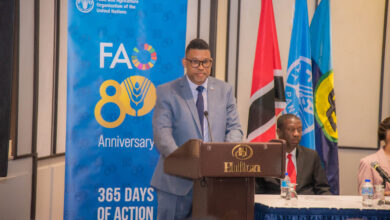The International community is convinced that to reduce poverty and improve living standards in developing countries, it is necessary to promote the integration of statistics and reliable data in the decision-making process. Indeed, the effects of the financial crisis of 2008 are still being felt all over the world with a slow economic recovery. Moreover, inequalities and the poverty have increased in the world during the recent past years. In addition, the post-2015 agenda is in discussion and we need to know where we are in order to fix the new priorities for the development issues in the coming years.
It is therefore imperative to have reliable and timely statistics in order to design, to implement and to monitor effective policies to address the various challenges related to development issues.
PARIS21 which was created in 1999 as a response to the challenges faced by both statisticians and decision-makers, to encourage a better use of statistics in developing countries, by providing support and strengthening their National Statistical Systems, is working in this context.
We are working with CARICOM to deal with these challenges by strengthening the Statistical System within the region’s countries. In past years, meetings, workshops were on the agenda to emphasize the strategic planning and the role of the NSOs and NSSs in the national development policy. NSDS and advocacy activities were supported in Anguilla, Barbados, Belize, Bermuda, Grenada, Jamaica, St Kitts and Nevis, and Suriname.
As we all know, many efforts have been made by the countries and results are noticeable. I will mention only a few. As of today, all CARICOM countries have subscribed to the GDDS (General Data Dissemination System) or SDDS (Special Data Dissemination Standard) and all of them conducted a population census in the last five years. About half of the region’s countries have CRVS (Civil Registration and Vital Statistics) coverage over 90 %, a CPI (Consumer Price Index) base year from within the last 10 years, and the SNA (System of National Account) 2008 or chain-weighted GDP data.
But, it is imperative to do more and do it fast.
This High Level Forum is a great opportunity to advocate and to promote the better use of better statistics, to strengthen the NSS and to support overall development processes in order to achieve these goals.
It’s important to improve the collaboration in statistics within countries in CARICOM to strengthen the region’s statistical bases in order to provide early warning signals on economic, social and environmental challenges. It is also important to encourage Member States to invest in statistics and make use of the data produced.
Another important challenge is to enable the production of a CARICOM Strategy for the Development of Statistics (CSDS) that can promote implementation of the common Regional Statistical Work Programme (RSWP) at the country level.
Some expected outputs of the first High Level Forum on Statistics of CARICOM in 2009 in Trinidad and Tobago were advocacy for the statistics at a high level in the Community and commitment by member countries to invest in statistics as a priority in the Region as a basis for development and by international and regional organizations to greater resource mobilisation for sustained investment in statistics. We are still implementing those recommendations and we need to increase advocacy for more official commitment and to mobilize necessary resources.
I look forward to the discussions today and in the coming days which will help continue contributing to this agenda and on behalf of the Partnership in Statistics for Development in the 21st century, I wish you, fruitful discussions.
Thank you.






